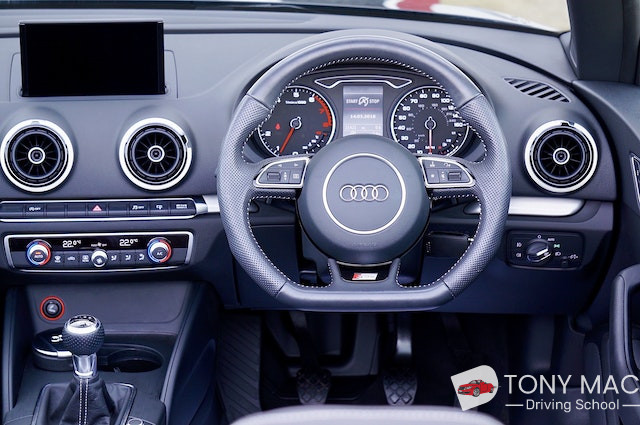The Ultimate Guide for Beginner Drivers: Tips, Challenges, and Best Practices
Ending up being a proficient driver is a vital skill that includes considerable obligations. For beginner drivers, the journey from getting their driver's license to ending up being a seasoned road user can be both thrilling and overwhelming. This thorough guide will check out important tips, common challenges, and best practices for beginner drivers.
Understanding the Importance of Driving
Driving plays an important role in life. It offers independence and the capability to take a trip longer distances efficiently. Nevertheless, it also demands attention, responsibility, and a comprehensive understanding of traffic laws and car operation. For beginner chauffeurs, mastering these components can result in a safer and more satisfying driving experience.
Tabulation
- Getting ready for the Road
- Important Skills Every Beginner Driver Should Know
- Typical Challenges Faced by Beginner Driver s
- Tips for Safe Driving
- Frequently Asked Questions (FAQs)
1. Preparing for the Road
Preparation is key for any beginner driver. This involves understanding both theoretical and practical aspects of driving.
1.1 Getting Your Driver's License
Before hitting the road, individuals should obtain a driver's license. The process generally includes:
- Completing a driver's education course
- Passing a composed knowledge test
- Finishing a specified variety of hours of monitored driving
- Passing a road test
1.2 Familiarizing Yourself with the Vehicle
Understanding the vehicle you will be driving is important. New chauffeurs should end up being familiarized with:
- The dashboard layout
- Basic controls (steering, pedals, indicators)
- Safety functions (seatbelts, air bags)
- The area of vital products like the spare tire and emergency situation set
2. Vital Skills Every Beginner Driver Should Know
As motorists, particular skills should be mastered to guarantee safety and confidence on the road. Beginner chauffeurs ought to concentrate on:
2.1 Basic Driving Techniques
- Starting and Stopping: Learning the correct way to start the car and concern a total stop.
- Steering Control: Understanding how to steer efficiently and make accurate turns.
- Parking Skills: Gaining confidence in parallel parking, angle parking, and parking in different scenarios.
2.2 Defensive Driving
- Awareness of Surroundings: Constantly scanning the environment for potential risks.
- Keeping Distance: Keeping safe distances from other cars to allow for stopping time.
- Predicting Others' Actions: Anticipating the habits of other drivers and pedestrians.
2.3 Navigational Skills
- Reading Maps and GPS: Being able to navigate utilizing standard maps and contemporary technology.
- Understanding Traffic Signs: Familiarity with road indications, signals, and markings to guarantee compliance with traffic laws.
| Skill Set | Description |
|---|---|
| Fundamental Driving Techniques | Starting, stopping, guiding, and parking |
| Defensive Driving | Awareness, maintaining range, predicting actions |
| Navigational Skills | Utilizing maps and GPS, comprehending traffic signs |
3. Common Challenges Faced by Beginner Drivers
Even with preparation and practice, beginner chauffeurs typically face a number of obstacles that can impede their knowing process.
3.1 Overcoming Fear and Anxiety
Beginning to drive can be overwhelming. Lots of new drivers experience stress and anxiety or fear, particularly in high-traffic situations.
3.2 Learning Road Rules
With lots of guidelines to remember, it can be challenging for novices to monitor everything, specifically when under pressure.
3.3 Navigating Diverse Driving Conditions
As beginners gain experience, they will need to learn how to handle different climate condition (rain, snow, fog) and road types.
4. Tips for Safe Driving
For beginner chauffeurs, adopting safe driving routines is crucial. Here are some best practices:
Avoid Distractions:
- Do not use your phone or other devices while driving.
- Limit in-car discussions that may take your focus far from the road.
Comply With Speed Limits:
- Always follow published speed limits.
- Change speed according to road and weather conditions.
Use Turn Signals:
- Always signal your intention to turn or change lanes.
- This notifies other chauffeurs and promotes safer driving conditions.
Stay Calm and Patient:
- Keep your emotions in check to avoid aggressive driving.
- If you slip up, remain calm and learn from it.
4.1 Important Safety Features to Utilize
- Anti-lock Braking Systems (ABS)
- Traction Control
- Crumple Zones and Airbags
5. Frequently Asked Questions (FAQs)
Q1: How long does it take to become a proficient driver?A1: The timeline differs, however with consistent practice and experience, a lot of learners end up being adequately proficient within 6 to 12 months. Q2: What should I do if I am associated with an accident?A2:
Always ensure safety initially, call emergency services if required, record the scene, and exchange info with the other celebration. Inform your insurance provider immediately. Q3: Can I take driving lessons if I have my learner's permit?A3: Yes, it is extremely suggested to take structured driving lessons with a qualified instructor while holding a learner's authorization. Q4: What are the advantages of defensive driving courses?A4: Defensive driving courses enhance safety awareness, reduction accident threat, and may use discounts
on insurance premiums. Q5: What must I do if I feel nervous while driving?A5: Practice driving in low-stress environments, think about taking driving lessons, and talk with somebody who can supply assistance or
recommendations on how to manage stress and anxiety. Driving is a valuable ability
that enhances personal mobility and self-reliance. For beginner motorists, acquiring knowledge, sharpening necessary skills, and conquering obstacles are essential steps
in their journey towards ending up being confident and safe motorists. By following this guide and accepting a favorable knowing attitude, novice drivers can lead the way for an effective driving future.

